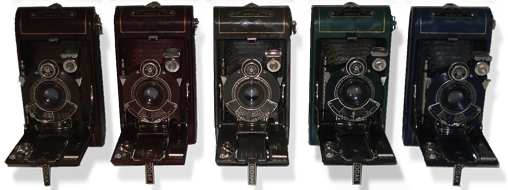Apple patent bullying reaches new low

People whining about human rights violations at Apple manufacturing facilities in China should look at business behavior, too, for it reveals much. Companies tend to act fairly consistently, reflecting the personalities of the people running them. If Apple shows disregard for workers making its products, then so should insensitive behavior crop up elsewhere. I see it in the callous patent attacks, which reached a new low yesterday. The company wants to sue bankrupt Kodak.
Apple's asking a bankruptcy court to sue for the patents is like demanding a judge turn over a portion of granddad's estate while he is still on life support. Kodak was the Apple of its day, bringing portable photography to the mass market in ways quite similar to iPod, iPhone and iPad today. Apple and Kodak are two of the greatest innovative American consumer technology companies of the last century, and they share similar attributes about creating compact, trendy and attractive products. On the design front, Apple owes much to Kodak and borrowed much from it. What a helluva way to show gratitude.
Last week, Kodak stopped manufacturing digital cameras, which surely is an eventual death sentence. Digital is the future of photography. Film, once Kodak's high-margin lifeblood, is dead. The Rochester, N.Y.-based company lists assets of $5.1 billion but debt of $6.8 billion in its bankruptcy filing. What's left but the patents? Hey, they generated more than $2 billion in licensing fees over the past three years.
Of course, Kodak's patents are hugely valuable. Perhaps Apple would like to get its grubby hands on them for next to nothing; through court proceedings interrupt their transfer or sale to another party; or obtain some kind of licensing agreement to use them -- potentially for a fraction of their value. Surely Apple can't hope to extract money from bankrupt Kodak. But given Kodak's pending patent claims against Apple, there is leverage.
"Apple requests express authority from this court before it initiates the actions out of an abundance of caution", according to the filing, obtained by Bloomberg.
Shared Legacy
Already Apple borrowed much from Kodak, which is why I'd expect more homage than this. Apple's approach to product design reminds of young Kodak, as does research and development, emphasis on product functional simplicity, manufacturing and distribution operations, reaping high profit margins, commanding huge brand appeal and catering to consumers. Sure Kodak profited big from business sales, but consumers made the brand and kept the volume of high-margin film sales coming.
I won't go into specifics here, for a whole paper could be written, but just say that Kodak is the historical case study for any company looking to sell portable consumer electronics to the mass-market.
Kodak's design approach is the most visible example of what Apple borrowed -- and that's no criticism. Apple learned from its forebear, smartly applying lessons learned from history.
For example: In 1927, Kodak commissioned Walter Dorwin Teague to design a new line of cameras. The company wanted to increase its cameras' appeal to women. Teague presented the diminutive Vest Pocket line in five distinct colors. Nearly 80 years later, Apple chief designer Jony Ive applied the same five-color concept to iPod Mini. Similarly, like Teague presented a smaller camera, Ive designed a smaller music player. Apple has since kept the colors coming, and they're important for broadening product appeal beyond stereotypical male gadget geeks to women and to younger buyers, especially teens.
iPad 2 Smart Covers cleverly extend the approach, using color as a differentiator. The cases add dramatic color, and personality, to iPad 2, broadening its appeal, particularly to younger buyers. What I keep asking myself as iPad 3 rumors rise: Will the next Apple tablet come in five colors? There's too much profit in the covers methinks. But if Apple ever does release the rumored 8-inch iPad, expect colors there as differentiator. That would be consistent with Apple's approach with iPod, which started out white and added black then colors as the music player got smaller.
Kodak deserves more dignity than Apple's patent request gives. One of the greatest American innovators will soon be laid to rest -- and an iconic brand with it. Has Apple no respect for the dying? And if no respect for the dying, then why have any for the living?
My first three digital cameras were Kodaks. My last purchased is from Fuji, Kodak's archenemy during the height, and decline, of the film era. Perhaps my next camera will be some future iPhone. Must Kodak's blood be on it, too?